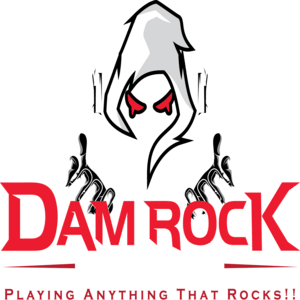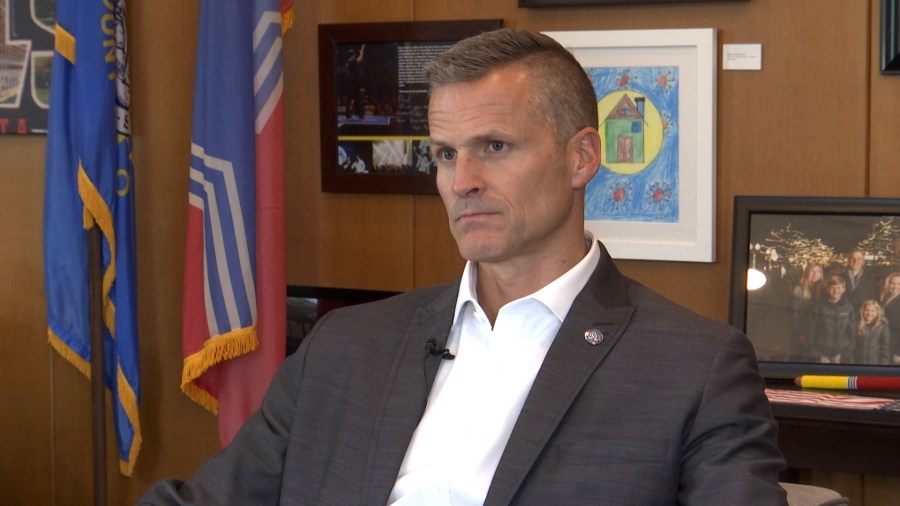SIOUX FALLS, S.D. (KELO) — Sioux Falls Mayor Paul TenHaken phoned in to KELOLAND News Monday afternoon to discuss some of the issues facing the growing city, including alcohol abuse and violent crime.
This conversation comes as the city’s police pursue their sixth homicide investigation of the year, and follows just weeks after TenHaken highlighted the role of cheap alcohol in the issues facing the city’s homeless population.
Rosebud woman joins small list of female tribal leaders
Following a Sunday afternoon shooting in a local park that left one dead and others injured, TenHaken was asked to address citizens of the city who are growing increasingly concerned about the apparent growth in violent crime.
In looking at this matter, TenHaken wanted to focus on per capita numbers.
“When we’ve grown by 30,000 people in the last five or six years, you’re going to have more violent crime. Because when we average five, six violent crimes per 1000 residents and you had 30,000 people, that’s 180, 250 more violent crimes,” reasoned TenHaken.
The mayor also noted that many of those committing violent crimes are not “new to the system,” as he put it. “In a lot of cases, we’ve arrested them many, many times,” he said.
This, said TenHaken, is a big frustration.
“This is why I’ve been preaching mentorship for six years,” TenHaken said. “Some of our toughest criminals in this community are kids that are under the age of 18. Okay? And so I don’t know how our police department is going to fix a 16-year-old that isn’t getting the resources, the programming, the nuclear family attention that he needs to ensure that he’s not out on a Friday night jacking someone’s gun out of an unlocked car.”
What TenHaken did want people to focus on, in addition to per capita numbers, is the city’s “close rate,” or how often the city’s police solve a violent crime. “It’s higher than most cities our size in the country,” he said. “The police department’s doing an incredible job at solving the crimes when they happen.”
On the subject of alcohol, TenHaken recently stated that he would like to see local businesses stop selling bottom-shelf liquor.
Asked about a recent (failed) proposal in Rapid City to limit the hours in which off-sale liquor could be sold in the morning, TenHaken indicated a similar fate would likely meet such a proposal in Sioux Falls.
“I was watching very closely what Rapid was doing,” said TenHaken. “I would expect something like that to fail in Sioux Falls if we did it citywide to, you know, to say, ‘hey, the entire city of Sioux Falls, we don’t trust you to buy liquor before 10 a.m.'”
This being said, TenHaken did leave the door open for a more limited measure.
“I would never propose something like that. But I would say, you know, in a downtown district — do we need to sell off-sale [liquor] before 10 a.m. right in our downtown? I don’t know,” speculated TenHaken. “It’s worth looking at and I plan to talk to some of the [city] councilors,” he said.
When it comes to stemming the availability of alcohol, TenHaken voiced a preference for a more collaborative approach.
“I don’t like it when government mandates things that we can maybe solve with a conversation,” he said. “We’re having those conversations with some of our downtown retailers and people in our downtown who sell liquor and who sell some of the cheaper stuff — they want to be part of the solution, you know, they don’t want to look to just make a few extra bucks off people suffering from the disease.”
From the issue of alcoholism, TenHaken looked to widen the view to addiction as a whole. “we’re dealing with just the disease of addiction. So I want to start with that context and that kind of baseline of that addiction is a disease. And so we’re trying to, at a government level, deal with a disease that permeates all of our country,” he said.
TenHaken pointed to The Link — a community triage center in Sioux Falls. “The link is creating a place where those suffering from this disease of addiction can go and get linked to the right resources. You know, some of those people do choose to get linked to the right resources,” he said.
Some people do not — or cannot — make that choice, TenHaken acknowledged and raised the question of what can be done about the accessibility of alcohol, short of banning sales.
Police: 4 people shot at Dunham Park, no arrests yet
“The example I’ll use in this is if a one-liter thing of vodka is $7 and a business stop selling that — they may say, well, it’s fine. They’ll just go up a shelf and buy the $12 liter. It’s only five more bucks,” TenHaken said, speaking of a hypothetical buyer, “but it’s five more bucks that you have to either panhandle or try and get. It makes it harder to obtain that.”
While it’s his hope that businesses may make the choice on their own to reduce sales of certain types of alcohol, he did acknowledge a more heavy-handed approach the city has used.
In a handful of occasions — most recently in the case of businesses such as the Lucky Lady Casino and the Mercado store at Plaza 600 near downtown — the city council has chosen to deny the renewal of off-sale liquor licenses to businesses.
“They have to look at if that license is being used at what’s called a suitable location,” said TenHaken of these scenarios.
Another example of this approach was that of Walia, a convenience store along E. 10th St. in Sioux Falls which did not have it’s liquor license renewed in 2019.
“In the case of Walia — that’s less than a block from Bishop Dudley (a local shelter),” said TenHaken. “It was creating a real challenge for that whole neighborhood.”
During his previous discussion of the issues of alcohol and what he calls the city’s “nuisance population,” TenHaken held up the removal of licenses at the Plaza 600 building as a success, noting that calls for service in the area decreased substantially.
The flip side of that action was that the businesses in the building closed. It appears that a new tenant may soon be filling that space, with an effort to bring in Southeaster Behavioral Health in the works.
This swift repurposing has not occurred for Walia, however, which has sat as an empty corner along a busy street in recent years. We asked TenHaken about whether in his eyes it was better that a location sit vacant than be a contributor to a problem.
“For sure,” answered TenHaken. “I’d rather have it be empty than have it be a high crime block — If I had a choice to say, hey, could a block be high crime or be underutilized, I’d rather have it be underutilized while we figure out what the best long term use of it is.”







